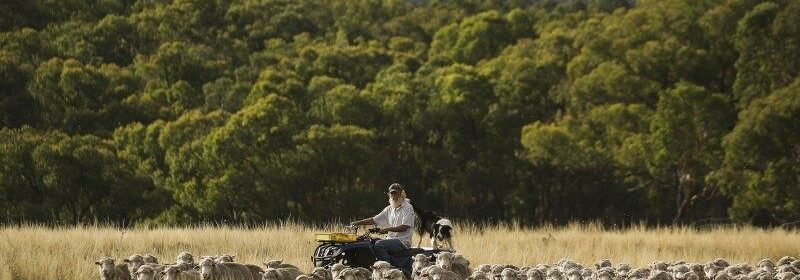Unlimited carbon offsets could harm agriculture, farmers warn

A major farmers’ group is calling for the Albanese government’s signature climate policy to impose limits on the use of carbon offsets, warning without them big polluters could buy up valuable farmland to grow trees for greenhouse abatement and put small family farmers out of business.
Farmers for Climate Action, one of the largest agricultural lobby groups with 7500 members, says the fact the government’s safeguard mechanism allows the country’s top polluters to achieve all their required emissions reductions by purchasing offsets comes at a risk to farmers.
Farmers are warning that the federal government’s climate policy could have adverse impacts on agricultural production.Credit:Alex Ellinghausen
Chief executive Fiona Davis said on Tuesday the new policy could result in a rush of tree planting projects on previously productive farmland that would be sold to big polluters, which will be forced to spend millions on carbon offset schemes if they don’t adopt cleaner technology.
Climate Change and Energy Minister Chris Bowen has promised the emissions caps will be in place by July 1. They will be imposed on the nation’s 215 biggest polluters and require them to cut emissions by at least 4.9 per cent a year, or 30 per cent by 2030. Bowen anticipates the mechanism will generate one-third of the cuts needed to reduce emissions by 43 per cent by 2030.
But there is no limit on how many carbon offset credits a polluter can use to meet their targets under the safeguard mechanism’s rules.
“Unlimited offsets will multiply the size of the [offset] industry, which increases the chances of unscrupulous operators and dodgy offsets,” Davis said.
“If a future media exposé reveals dodgy offsets and causes a market crash, farming families who have invested in growing carbon credits will see them become near-worthless.
“The best place to stop emissions is at the source.”
Davis also warned unlimited carbon credits could spur corporate farmland buy-ups for carbon credits like the managed investment schemes that grew from federal reforms in 1998 to permit small investors to pool their funds to invest in a large-scale agricultural operation including farm forestry.
“The potential for huge companies to outcompete family farms and take over millions of hectares of food producing land to grow carbon offsets is real – very similar has happened before with managed investment schemes.”
Bowen on Tuesday morning said the safeguard mechanism did not limit the use of carbon credits because some big polluters are being forced to cut their carbon footprint before new, cleaner technology is available.
He said the framework provides an incentive for the companies to “get serious about on‑site abatement”.
“But it does necessarily provide that flexibility as to how they’ll do it, particularly in the shorter term as we’re waiting for that technology, whether it be in cement or steel or other things to come on,” Bowen said.
The Australian Farm Institute think tank said selling offsets to third parties, and committing a portion of land to carbon abatement activities like tree planting, reduces the ability of farm businesses to offset their own emissions generated by livestock and machinery.
Pressure to reduce agricultural emissions is exponentially increasing as industries respond to climate impacts on farming’s natural resources and consumer demands for more ambitious climate targets, such as the red meat sector’s net-zero emissions by 2030 pledge.
“Farmers and landholders who sell credits could find themselves on the wrong side of the carbon accounting ledger in future. With sustainability reporting becoming mainstream, farmers must evaluate the value of using carbon credits generated on their land to balance their own emissions,” AFI general manager Katie McRobert said.
Cut through the noise of federal politics with news, views and expert analysis from Jacqueline Maley. Subscribers can sign up to our weekly Inside Politics newsletter here.
Most Viewed in Politics
From our partners
Source: Read Full Article
